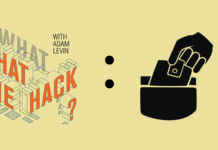An 18-year-old looking to purchase his first car.
A young woman applying for the student loan that will put her through college.
A foster youth aging out of the system and eager to get a place of his own.
These are exciting milestones in the lives of young people, turning points that mark new beginnings and the start of independence. Now imagine you’ve reached this crossroads only to discover that your identity had been stolen. Instead of the pristine, untapped credit record you’re expecting, you find years of charges, debt and defaults racked up by a criminal using your name and Social Security number.
It’s a scary thought, and not as rare as you may think. Identity theft has been the top consumer complaint received by the Federal Trade Commission for more than a decade, and those complaints increasingly involve minors or young adults tapping into their credit for the first time. The ensuing chaos and barrage of paperwork is a difficult maze to navigate for most adults, never mind young people who have not yet even opened their first credit card.
Children are particularly vulnerable because they have little reason to access their credit histories. By the time the discrepancies are discovered, the damage has been done. We must make it easier for parents to protect their children’s financial futures.
All children are vulnerable to identity theft, but foster youth are especially susceptible. Their personal information, including Social Security number, is passed through many hands, increasing the chances of abuse. Moreover, when they age out of the system, they often lack a parent advocate to fight on their behalf. As a co-chair of the Congressional Caucus on Foster Youth and someone who grew up with foster siblings, this is an issue about which I care deeply.
In 2011, I successfully incorporated a provision into the Child and Family Services Improvement Act mandating free credit checks for foster youth over 16 years old, giving them time – and assistance – to clear inaccuracies from their records before they aged out of the system.
I believe similar protections are necessary for all children, and I continue to call on my colleagues in Congress to enact a solution.
The Protect Children from Theft Act, which I introduced in April, aims to safeguard children from becoming victims of identity theft. The bill directs the Consumer Financial Protection Bureau to write a rule that gives parents and guardians the ability to create a protected, frozen credit file for their children. Placing a freeze on a credit report would prevent lenders and others from accessing a credit report entirely, which in most instances would stop an extension of credit. I hope that this legislation, if passed, would create a simple, easy-to-understand process for families to protect their child’s financial interests. New parents are consumed with many questions and concerns; diapers and teething likely take precedence over their child’s future credit score. We need a process by which parents and guardians have an easy, streamlined way to freeze a child’s credit.
As co-founder and co-chair of the Congressional Cybersecurity Caucus, I am well aware that cybersecurity is not a problem that can be solved, only managed. An often overlooked component to that management is resilience, being able to recover from an incident. We are all increasingly reliant on technology and the data that drive it; today, we trust a multitude of networks with personal financial data and private information, including health care records and, yes, even our Social Security numbers. If we want to benefit from the economic efficiencies of technology but still avoid identity theft, we need personal cyber resiliency so that we can recover when our data are compromised. We need to keep tabs on who has our personal information and what is at risk in the case of a breach. We need to check our credit scores, put alerts on our credit cards and work with our banks to ensure our financial information is as safe as possible. And we need to exercise the same vigilance for our children and their data.
I will continue to fight to protect children from identity theft to give them a fair shot when their time comes. Let’s share our good cyber habits with the next generation and make sure that when they are ready to buy that car, take out that student loan or sign a lease on that new apartment, identity theft doesn’t derail the milestone.
This article is written by Representative Jim Langevin and originally appeared on Credit.com.










